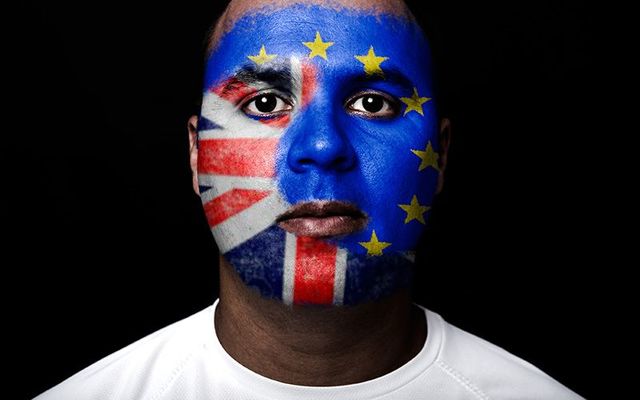With only a few days to spare, the UK and EU struck an eleventh-hour deal on Christmas Eve on the new terms that will govern trade and the political relationship between the two sides from 2021.
Brimming with timely messianic zeal, British PM, Boris Johnson, finally had something to cheer from a pretty dismal year. He staked his reputation on getting a deal and he has, by the skin if his teeth, delivered one.
However, where does this deal leave Scotland and Northern Ireland, who both voted to remain what seems like a lifetime ago, in 2016? While it offers some clarity for the UK, it will not quell the rising tide of Celtic frustration and may indeed have inadvertently sewn the seeds for the end of the UK as we know it.
The deal offers the UK tariff-free access to the EU market for goods, quite an achievement for the British negotiators, but there will be a price to pay. Most importantly, the British government will lose its seat at the table of the largest trading bloc in the world and businesses will have to factor in the costs of new customs paperwork, keep up with EU market regulations they cannot influence and face delays at border crossings.
The Irish Protocol from 2019 already gave Northern Ireland the best of both worlds: a guaranteed place within the EU customs union while remaining a part of the UK. How this works in practice remains to be seen but a few points stand out.
First, with the land border within Ireland staying invisible as new customs procedures are introduced in traded goods in the Irish Sea, the simple truth is that it will become comparably cheaper and less complicated to trade within the island of Ireland and the EU than to continue trade across the Irish Sea.
This will surely have long-term consequences for Northern business and society. Ferry capacity has already increased on direct routes from Ireland to the continent to avoid the logjams in British ports.
Second, the COVID experience and the essential need for cooperation and harmonization north and south highlight just how integrated the island economy has become since the Good Friday Agreement.
Faced with a lack of leadership from London, NI was forced to create its own response, which included increased collaboration with Dublin. These two examples may change little in the short term but, looking further ahead, Brexit has ensured that this is no longer the UK as we have known it.

British Prime Minister Boris Johnson. Credit: Getty
Scotland has been paying particular attention to the North’s situation and the Scottish government, led by the SNP, is determined to use this example as leverage with London. If it’s good enough for one part of the UK, why not for another?
Most observers concede that Brexit has fundamentally changed the ground rules of the UK’s structure and Scotland’s place therein, a point that the SNP has driven home since 2016.
With a deal now in the books, the Scottish nationalist machine will kick into full gear, buoyed by the polls that put Scottish independence firmly within reach. In particular, the SNP highlights the democratic wish of Scotland to remain in the EU and the perceived power grab contained in the recent Westminster Internal Market Bill, which undermined devolved powers and disregarded Scottish views.
As the leader of the SNP, Nicola Sturgeon, has said, the UK “is not a relationship of equals” and Scotland’s interests would be better served as an independent country within the EU. The Scots are very proud of their devolved powers and, in many policy areas, work more closely with Brussels than London.

SNP leader Nicola Sturgeon.
The real test occurs in May, when Scotland elects MPs to the Scottish parliament and a new vote on independence could be requested. The London government seems to think the case is closed on Scottish nationalism, with Minister Michael Gove claiming that “no SNP MPs existed before the UK joined the EU.”
This is misguided and overlooks the fact that the SNP also grew as a response to Thatcherism and English nationalism, the latter representing the driving force of Brexit.
The London government has put “taking back control” from the EU front and center of its national sovereignty mantra. However, this approach presumes that sovereignty is a zero-sum game, where one country’s loss is precisely mirrored by another’s gain.
This is a very transactional view of sovereignty that prioritizes national control for its own sake over national benefits and overlooks the gains accrued from pooling limited amounts of national sovereignty for the sake of a greater presence on the global stage. Both Scotland and Northern Ireland recognized this benefit and voted against Brexit.
The past four years have only exposed more clearly the very different political cultures and social preferences between England and its Celtic neighbors. In some senses, Scotland and Northern Ireland needed the EU connection to make the UK work. This connection will soon disappear, which does not bode well for the future integrity of the UK as we have known it.
The words of Winston Churchill’s grandson and former UK government minister, Sir Christopher Soames, from 1975, still ring true today as Britain “needs to decide if it wants part of a reality or all of an illusion.”
* Peter Moloney is from Limerick and earned his PhD in European History at Boston College. He has been published on Brexit in the Irish Times and NPR and is currently teaching history at Excelsior College.




Comments